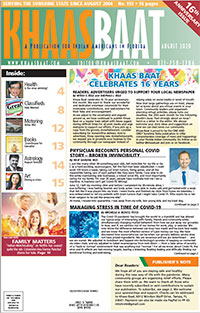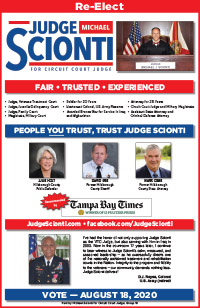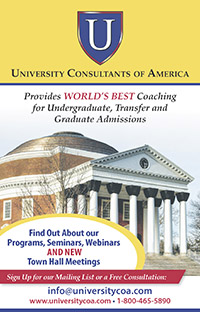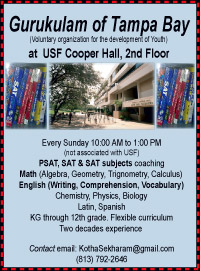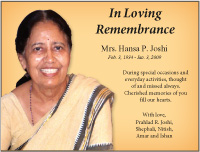
TO SEE THE AUGUST ISSUE IN ITS ENTIRETY, CLICK THE KHAAS BAAT FRONT PAGE IMAGE ON THE RIGHT. >>
READERS, ADVERTISERS URGED TO SUPPORT YOUR LOCAL NEWSPAPER
Khaas Baat celebrates its 16-year anniversary this month. We want to thank our wonderful and dedicated volunteer columnists for their invaluable contributions, and well-wishers for their help and encouragement.
As we adjust to the uncertainty and anguish around us, we have continued to publish Khaas Baat on a regular basis (albeit with fewer pages) during difficult times for all print media and urge everyone to support our efforts. If you pick up a copy from the grocery store/restaurant, consider subscribing for home/office delivery. And to advertisers, those opening new stores/restaurants, we request you to promote your business to the community through our newspaper instead of relying solely on social media or word of mouth.
Now that large gatherings are on hold, please let us know about any virtual events in your town. Community leaders and organizers planning virtual activities, please note our deadline, the 20th each month for the following month’s issue. Feel strongly about an issue? Send us a letter to the editor. We always welcome your story ideas and suggestions on how we can best serve our community.
Khaas Baat is proud to be the ONE AND ONLY Sunshine State publication to offer comprehensive coverage of news and happenings in your Florida Indian community. Do follow us on twitter @khaasbaat and join us on Facebook.
TAMPA FIA CELEBRATES INDIA INDEPENDENCE DAY AUG. 15
The Federation of Indian Associations of Tampa Bay (FIA of Tampa Bay) will celebrate India Independence Day virtually (tinyurl.com/fiatampabay) from 4 to 5:30 p.m. Aug. 15. Chief guest will be University of South Florida President Dr. Steven C. Currall. Activities include rangoli display, 2020 high school graduate recognition, art, essay and patriotic costume contests, Voice of FIA, and cultural programs. For more information, visit www.fiatampabay.org
PHYSICIAN RECOUNTS PERSONAL COVID STORY – Broken InvinCibility
I, just like many other 30-something-year olds, felt invincible for my life so far. I, as a hard-working neurosurgeon, felt this fact had been adjudicated. I could work 100 hours a week, taking out brain tumors, fixing spines, and all the meanwhile taking care of each patient like they were family. I was able to do this while maintaining side businesses, a robust social life, and most importantly caring for my family. For over 20 years, people have routinely told me I am a machine. A machine can’t get Covid-19. Wrong!
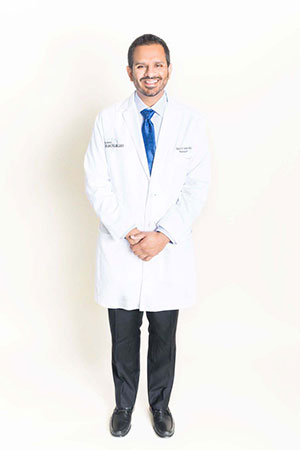 June 12, I left my morning clinic and before I completed my 30-minute drive, I was suffering. I was feeling feverish and body aches. I was able to make calls and get tested with a swab that felt like it was placed into my brain. I went home and finished my clinic from home via televideo. I was embarrassed to tell my patients with brain tumors that I might have Covid-19. Who wants his or her brain surgeon to be just like everyone else?
June 12, I left my morning clinic and before I completed my 30-minute drive, I was suffering. I was feeling feverish and body aches. I was able to make calls and get tested with a swab that felt like it was placed into my brain. I went home and finished my clinic from home via televideo. I was embarrassed to tell my patients with brain tumors that I might have Covid-19. Who wants his or her brain surgeon to be just like everyone else?
At home, I moved into quarantine. I was away from my wife, two young kids, and my loyal dog. My test was positive and my spirit was crushed. A thought of my immortality had never entered my mind. Now, I was forced to consider the possibilities and I began remembering all the stories of young patients dying from Covid-19. I had to ask the questions that plague any young man considering the end. The next few days, I was overwhelmed by fevers and physical pain. I have had broken bones before and this pain was significantly worse. I contemplated going to the emergency room but didn’t want to expose other healthcare workers to me. Mom told me to take turmeric, ginger, honey, lemon but still no relief. I took traditional medications and no relief. The pain went through my core and penetrated every part of my body like dull knives being stabbed from my head to my feet. Now, I understand pain.
I began to turn the corner but remained in quarantine. My beloved wife left me food on paper plates outside. I had no personal contact, and couldn’t take care of the patient’s that I had been so dedicated to. I was lucky that many friends, family, and patients were praying for me and sending me kind words. However, the sense that I was broken was overwhelming.
I was like so many other young people I see on the news. I was cavalier about the virus. I wore masks around patients, at the grocery store, and friends but not 100 percent. As a gregarious man, I find it very hard to socially distance but now I know it must be done. I hope my experience sheds light on this matter for others. I can spend 18 continuous hours without break taking out a brain tumor but I couldn’t tolerate the virus. I am strong of mind, spirit, and body but the virus broke me. I am recovered from the virus but my life will always be slightly different. I hope and pray that people can use this message to educate themselves, friends and family. Be safe. The mask is a seatbelt for your mind, body and spirit.
I got the virus from someone while neither of us were wearing masks. My wife and kids were wearing masks around me during all of our interactions. The masks do work and are a must. Wear the mask to protect yourself, protect others, and respect the many that have died from Covid-19.
Dr. Ravi Gandhi is a neurosurgeon specializing in complex brain and spine diseases with Orlando Neurosurgery. He can be reached at [email protected] or (407) 975-0200.
GUEST COLUMN
MANAGING STRESS IN TIME OF COVID-19
The Covid-19 pandemic has brought the world to a standstill and has altered our typical ways of interacting with family, friends and community while simultaneously changing myriad behaviors from how we put away our groceries to how, and if, we venture out of our homes for work, play, or exercise. We now know the difference between ear-loop face masks and tie-back face masks and we know the most effective version of Lysol money can buy. We have discovered how resourceful we can be when our grocery delivery service does not have prized ingredients. We are tenacious and we are determined … and we are scared. We adjusted to lockdown and tapped into technology’s promise of keeping us connected via video chats, and we adjusted to failed re-emergence from lock-down — from a false sense of security of a “back to normal” environment that was anything but “normal.” For all we know about Covid-19, the virus and its effects are fast-moving targets, leaving a sickening floating feeling and difficulty finding our emotional footing and well-being. We had lives before the virus hit, with our baseline stressors and coping repertoires. But the ramifications of Covid-19 likely impact our typical approaches to stress management as well.
Stress is fundamentally defined as a change or insult to one’s system from both external and internal sources. Stress is not always negative — it can be motivating. Without being reductionist, the stress response in the body consists of physiologic neurochemical cascades that produce sensations as well as emotional, cognitive and spiritual interpretations of those sensations. The body, mind and spirit develop ways to experience and process stressors, resulting in a process called habituation. In short, we “get used to it”— we allow it to run its course and manage it in various ways we have learned over time. The good news: stress (and the unpleasant thoughts, emotions and physiologic sensations that accompany it) is temporary if we adequately and adaptively process it. Stress avoided is stress artificially prolonged and maladaptively reinforced. This is where choice comes in: how we manage stressors, from whatever the source is up to us as active agents in our own wellbeing. By actively approaching stress in adaptive ways, we learn that we are able to tolerate how nasty it can feel, we gain success in working through it.
Covid-19 has left us floating in perpetuity of the unknown, which is an incredibly stressful place to be. One way to manage this free-floating stress is to practice grounding techniques. The breath bridges psychology and yoga and provides a nearly tangible place to start, or strengthen or re-engage with, a grounding practice. Furthermore, from a yogic perspective, engaging the two limbs of pranayama (breath) and asana (postures), we grow the potential for potent grounding, stress management strategies. If we regulate the breath through pranayama and asana, we directly address the nervous system that also connects with anxiety, stress and mood. If we regulate the breath, we regulate our entire experience and manage stress. To start your grounding practice, find yourself in a comfortable, upright seated posture. Gently close the eyes or soften the gaze. Bring your attention to the tip of your nose, trace each inhale past the tip of the nose, into the nostrils, and notice the inhale fully expand the rib cage. Trace the exhale the opposite way, noticing the contraction of the rib cage as the breath moves up into the throat, into the nostrils, and out past the tip of your nose. When the mind wanders, gently bring it back to the breath and its pathway. To emphasize the emotional and physiological release breath regulation can offer, try elongating the exhale. Doing so recruits the parasympathetic nervous system, which is necessary for release and relaxation — for decelerating the activation of the stress response.
Practicing breath work consistently is the key. Strive for consistency, not perfection. We are resilient; we will face COVID-19 well-grounded.
Michelle A. Bosco is a research psychologist and yoga instructor in Tampa and can be reached at [email protected]
ADVERTISEMENTS

